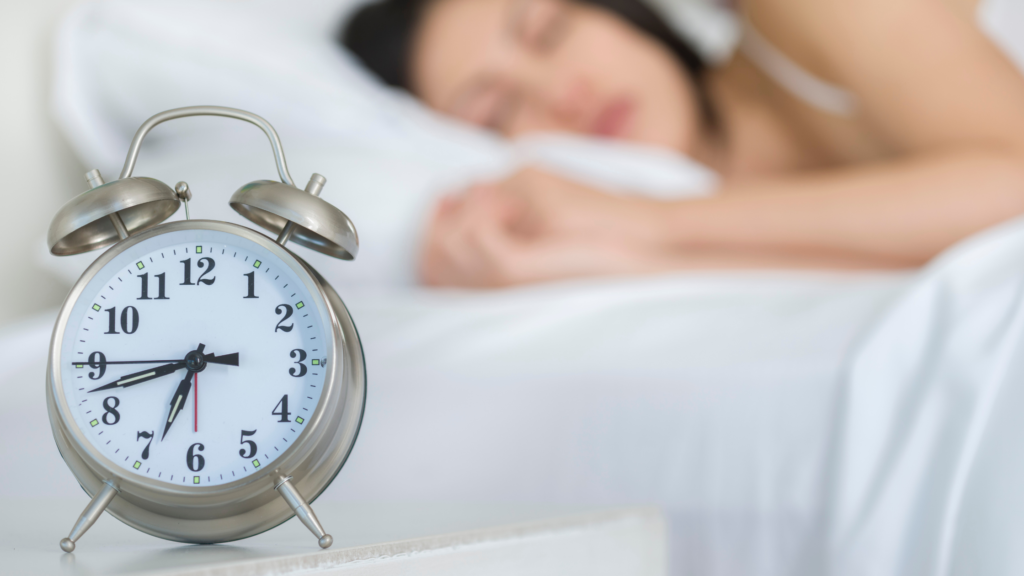Getting enough sleep is essential for your immune system to function optimally. Adequate sleep is associated with a reduced risk of infection and an improved ability to recover from illness. On the other hand, sleep deprivation can affect how effectively the body can protect itself against disease. Sleep is crucial as we continue to fight the COVID-19 pandemic. Unfortunately, many people experienced a negative impact on their sleep due to the pandemic.
The AASM Sleep Prioritization Study
According to the American Academy of Sleep Medicine’s Sleep Prioritization Study, COVID-19 and the Impact on Sleep, sleep was affected for many Americans during the COVID-19 pandemic.
- One-third of the people surveyed experienced an impact on sleep quality.
- A fifth of all survey respondents reported finding it harder to fall asleep during the pandemic.
- Nearly a fifth of survey respondents reported having less consistent bedtimes during the pandemic.
- Nearly one in five adults in the U.S. noted experiencing more disturbing dreams during the COVID-19 pandemic.
The survey also told us a few other things. For one, women were more likely to report negative changes in their sleep due to the pandemic compared to men. They were more likely to report a change in bedtime and a later wake-up during the pandemic than men.
The study also highlighted increased sleep problems for parents when compared to those who were not parents. Parents were far more likely to report reduced nightly sleep, diminished sleep quality, and increased difficulty falling asleep than those without children. Parents were also more likely to report trouble staying asleep than non-parents.
Why sleep problems increased during the pandemic
1. Increased stress
The pandemic has affected everyone differently, but many can agree that it has added stress to their lives. Stress is often the number one contributor to sleep problems, like insomnia, difficulty falling asleep, and waking up in the middle of the night without falling back asleep.
Many people are concerned about their economic stability. Millions of people lost their jobs during the pandemic. They are worried about how they will make money to care for their families or pay for their housing.
Understandably, people are also afraid of the virus itself. They may be even more concerned if they are in high-risk groups, like the older population or those with underlying medical conditions.
There is a lot of uncertainty surrounding the pandemic. It is unknown how long the COVID-19 will be around. Isolation from friends and family and spending too much time at home can make it hard to cope with stress, further contributing to the problem.
2. Disruption of routine
In addition to added stress, the pandemic also caused people to change their daily routine. It can be challenging to create or adjust to a new schedule, especially if you are home all day. The lack of anchors in your day can make it difficult to keep track of time. Working from home and distance learning doesn’t help. Without the need to travel to work or take the kids to school, it can be tempting to sleep-in, disrupting your sleep quality and duration.
3. Increased Depression
A study has shown that depression tripled during the pandemic. Depression can make it difficult to fall and stay asleep, further contributing to feelings of depression. Sadness can worsen if a friend or family member is sick or dies from COVID-19. Social distancing measures help stop the spread of disease, but they can have adverse effects on your mental health. They can lead to feelings of loneliness and isolation, which can trigger depression or make it more difficult to cope.
4. Increased Screen Time
Increased screen time can also contribute to sleep problems. During the pandemic, many people increased the amount of time they spend staring at a screen. Zoom meetings, checking updates on the phone, watching more television, and working on the computer for longer add up. Screen exposure, especially before bed, can be particularly harmful to your sleep. Not only do screens stimulate your brain, but they also emit blue light, which can suppress your body’s production of melatonin.
Sleep is Important
For some, the pandemic caused new sleep problems, while it may have exacerbated existing sleep issues for others. With so much change happening, it’s understandable why people are struggling to rest. But sleep plays a vital role in your overall health and can help protect you from COVID-19.


